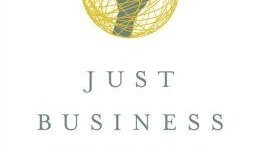A global ethic for the twenty-first century will be different from that of the twentieth century. While themes of normative and political continuity will exist, humankind's main moral challenges have changed. Between the two centuries lie the end of the cold war, the terrorist attacks of September 11, 2001, the global financial crisis, and the double transformation of the structure of power in world politics and the norms of sovereignty and intervention. Nuclear weapons will remain high on the agenda of a global ethic, but they will not hold as dominant a place as they did in the past century. This essay, focused on the continuing moral challenge of nuclear weapons, recalls the intellectual and moral lessons of the last century and identifies three leading issues in nuclear ethics today: post-cold war challenges to nonproliferation and deterrence, the new challenges posed by the terrorist threat, and recent proposals for Going to Zero.
To read or purchase the full text of this article, click here.
More in this issue

Fall 2013 (27.3) • Review
The Human Right to Health by Jonathan Wolff
This book will provoke the reader to think about how to bring the public sector, civil society, industry, patents, health financing, and human resources together ...

Fall 2013 (27.3) • Review
Just Business: Multinational Corporations and Human Rights by John Gerard Ruggie
This book offers an insider’s account of how the Guiding Principles on Business and Human Rights came into being. Although readers may sometimes strain ...
Fall 2013 (27.3) • Essay
How We Count Hunger Matters
In 2010 the FAO reported that in the wake of the 2007–2008 food-price spikes and global economic crisis, the number of people experiencing hunger worldwide since 2005–2007 had ...
